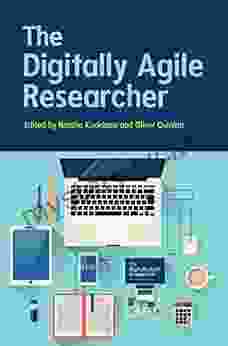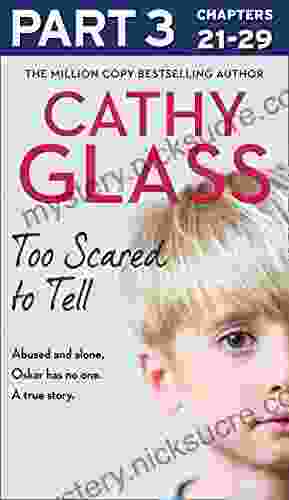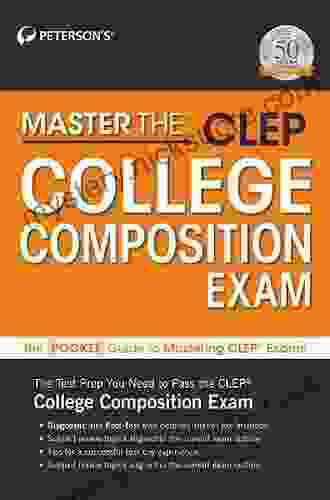Interviewing for Qualitative Inquiry: A Relational Approach

Qualitative inquiry is a research approach that seeks to understand the lived experiences of individuals and groups. In qualitative inquiry, researchers use a variety of methods to collect data, including interviews, observations, and document analysis. Interviews are a particularly important method for qualitative researchers, as they allow researchers to gain in-depth insights into the perspectives and experiences of research participants.
4.6 out of 5
| Language | : | English |
| File size | : | 951 KB |
| Text-to-Speech | : | Enabled |
| Screen Reader | : | Supported |
| Enhanced typesetting | : | Enabled |
| Word Wise | : | Enabled |
| Print length | : | 226 pages |
The relational approach to interviewing is a specific approach to interviewing that emphasizes the importance of building and maintaining a relationship with research participants. Relational interviewing is based on the belief that the quality of the data collected in an interview is directly related to the quality of the relationship between the researcher and the participant. When researchers have a strong relationship with participants, they are more likely to be able to gain access to rich and meaningful data.
Benefits of the Relational Approach
There are several benefits to using a relational approach to interviewing for qualitative inquiry. These benefits include:
- Increased access to data: When researchers have a strong relationship with participants, participants are more likely to be willing to share sensitive and personal information. This can lead to richer and more meaningful data for the researcher.
- Improved data quality: The quality of the data collected in an interview is directly related to the quality of the relationship between the researcher and the participant. When researchers have a good relationship with participants, participants are more likely to be honest and forthcoming with their answers. This can lead to more accurate and reliable data.
- Enhanced understanding: The relational approach to interviewing allows researchers to gain a deeper understanding of the perspectives and experiences of research participants. This is because researchers are able to build rapport with participants and establish trust, which allows participants to feel more comfortable sharing their thoughts and feelings.
- Increased participant satisfaction: Participants in relational interviews are more likely to be satisfied with the research experience. This is because they feel that they have been treated with respect and that their voices have been heard. This can lead to increased participation in future research studies.
Challenges of the Relational Approach
While the relational approach to interviewing has many benefits, there are also some challenges to consider. These challenges include:
- Time-consuming: Building and maintaining a relationship with research participants takes time. This can be a challenge for researchers who are working on a tight deadline.
- Emotionally draining: Relational interviewing can be emotionally draining for researchers. This is because researchers need to be sensitive to the needs of participants and be able to manage their own emotions in response to the often personal and sensitive information that is shared.
- Potential for bias: The relational approach to interviewing can introduce bias into the research process. This is because researchers may be more likely to favor participants with whom they have a strong relationship. Researchers need to be aware of this potential bias and take steps to minimize its effects.
Implications for Research Practice
The relational approach to interviewing has several implications for research practice. These implications include:
- Researchers need to invest time in building relationships with participants. This can be done through spending time with participants in their natural settings, getting to know their interests and concerns, and being respectful of their time and boundaries.
- Researchers need to be aware of their own emotions and biases. This is important for ensuring that the research process is fair and unbiased. Researchers need to be able to manage their own emotions in response to the often personal and sensitive information that is shared by participants.
- Researchers need to be flexible and adaptable. The relational approach to interviewing is not a one-size-fits-all approach. Researchers need to be able to adapt their interviewing style to the needs of each individual participant.
The relational approach to interviewing is a powerful method for collecting rich and meaningful data for qualitative inquiry. However, it is important to be aware of the challenges of this approach and to take steps to minimize its potential biases. By investing time in building relationships with participants, being aware of their own emotions and biases, and being flexible and adaptable, researchers can use the relational approach to interviewing to gain a deep understanding of the perspectives and experiences of research participants.
4.6 out of 5
| Language | : | English |
| File size | : | 951 KB |
| Text-to-Speech | : | Enabled |
| Screen Reader | : | Supported |
| Enhanced typesetting | : | Enabled |
| Word Wise | : | Enabled |
| Print length | : | 226 pages |
Do you want to contribute by writing guest posts on this blog?
Please contact us and send us a resume of previous articles that you have written.
 Fiction
Fiction Non Fiction
Non Fiction Romance
Romance Mystery
Mystery Thriller
Thriller SciFi
SciFi Fantasy
Fantasy Horror
Horror Biography
Biography Selfhelp
Selfhelp Business
Business History
History Classics
Classics Poetry
Poetry Childrens
Childrens Young Adult
Young Adult Educational
Educational Cooking
Cooking Travel
Travel Lifestyle
Lifestyle Spirituality
Spirituality Health
Health Fitness
Fitness Technology
Technology Science
Science Arts
Arts Crafts
Crafts DIY
DIY Gardening
Gardening Petcare
Petcare Terry Laughlin
Terry Laughlin Jonathan T Gilliam
Jonathan T Gilliam Carole Bouchard
Carole Bouchard Dr Monika Chopra
Dr Monika Chopra Chris Morton
Chris Morton Bruce Sutherland
Bruce Sutherland Justin Coulson
Justin Coulson Don S Lemons
Don S Lemons Nicola Yoon
Nicola Yoon Rebecca Musser
Rebecca Musser Stella Cottrell
Stella Cottrell Roger Marshall
Roger Marshall Ivar Dedekam
Ivar Dedekam Elizabeth Laing Thompson
Elizabeth Laing Thompson John Kretschmer
John Kretschmer Graham Hancock
Graham Hancock Katharine Mcgee
Katharine Mcgee Konstantinos Mylonas
Konstantinos Mylonas Kevin Houston
Kevin Houston Marc Van Den Bergh
Marc Van Den Bergh John M Marzluff
John M Marzluff Om Krishna Uprety
Om Krishna Uprety Sarah Ockwell Smith
Sarah Ockwell Smith Leon Speroff
Leon Speroff Lew Freedman
Lew Freedman Fern Schumer Chapman
Fern Schumer Chapman Dick Hannula
Dick Hannula Shawna Richer
Shawna Richer Max Lucado
Max Lucado Steven W Dulan
Steven W Dulan Dounya Awada
Dounya Awada Declan Lyons
Declan Lyons Tom Cunliffe
Tom Cunliffe Charu C Aggarwal
Charu C Aggarwal Db King
Db King David Tanis
David Tanis Sarah Prager
Sarah Prager Sophie Messager
Sophie Messager Elaine Tyler May
Elaine Tyler May Carol Inskipp
Carol Inskipp Carrie Hope Fletcher
Carrie Hope Fletcher Elizabeth Dupart
Elizabeth Dupart Lingo Mastery
Lingo Mastery Bruce Van Brunt
Bruce Van Brunt William Ellet
William Ellet Freya Pickard
Freya Pickard Kevin Howell
Kevin Howell Douglas Preston
Douglas Preston Ashley Eckstein
Ashley Eckstein Leslie R Schover
Leslie R Schover Phil Williams
Phil Williams Veronica Roth
Veronica Roth Lewis Kirkham
Lewis Kirkham R Scott Thornton
R Scott Thornton James Beard
James Beard Elmer Keith
Elmer Keith Richard Barrett
Richard Barrett Philip Purser Hallard
Philip Purser Hallard Nikki Carroll
Nikki Carroll Jim Al Khalili
Jim Al Khalili Jessica Holsman
Jessica Holsman Ed Housewright
Ed Housewright Ken Sande
Ken Sande Katie Fallon
Katie Fallon J D Williams
J D Williams Sophie D Coe
Sophie D Coe Melissa Mullamphy
Melissa Mullamphy Collins Easy Learning
Collins Easy Learning Jim Kempton
Jim Kempton Shaunti Feldhahn
Shaunti Feldhahn David Wilber
David Wilber Anthony Camera
Anthony Camera Duncan Steel
Duncan Steel Jessica Howard
Jessica Howard Marisa Peer
Marisa Peer Caitlyn Dare
Caitlyn Dare Nedu
Nedu Healthfit Publishing
Healthfit Publishing Law School Admission Council
Law School Admission Council Kyra Phillips
Kyra Phillips Michael Chatfield
Michael Chatfield Jason Runkel Sperling
Jason Runkel Sperling Bryce Carlson
Bryce Carlson Paul Rabinow
Paul Rabinow Cassandra Mack
Cassandra Mack Ruthellen Josselson
Ruthellen Josselson Tanya Hackney
Tanya Hackney Albert Jeremiah Beveridge
Albert Jeremiah Beveridge Hibiki Yamazaki
Hibiki Yamazaki Marcia Scheiner
Marcia Scheiner Robert Moor
Robert Moor Jennifer Appel
Jennifer Appel Troy Horne
Troy Horne Natasha Ngan
Natasha Ngan Pamela Weintraub
Pamela Weintraub Elizabeth Anne Wood
Elizabeth Anne Wood Greg W Prince
Greg W Prince Shelby Hailstone Law
Shelby Hailstone Law James W Anderson
James W Anderson Dan Flores
Dan Flores Kacen Callender
Kacen Callender Ransom Riggs
Ransom Riggs K C Cole
K C Cole Norman Thelwell
Norman Thelwell Pat Rigsby
Pat Rigsby Caleb J Tzilkowski
Caleb J Tzilkowski Michael Tan
Michael Tan Luc Mehl
Luc Mehl Jennifer L Scott
Jennifer L Scott John Moren
John Moren Robert D Gibbons
Robert D Gibbons Tyler Trent
Tyler Trent Joe Baker
Joe Baker Bruce Maxwell
Bruce Maxwell Natasha Daniels
Natasha Daniels Peter J D Adamo
Peter J D Adamo Matt Racine
Matt Racine Deirdre V Lovecky
Deirdre V Lovecky Narain Moorjani
Narain Moorjani Larry Larsen
Larry Larsen Simon A Rego
Simon A Rego Paul Murdin
Paul Murdin The Atavist
The Atavist Della Ata Khoury
Della Ata Khoury Max Lugavere
Max Lugavere Erin Macy
Erin Macy Charles Sanger
Charles Sanger Kat Davis
Kat Davis Elisabeth Elliot
Elisabeth Elliot Tey Meadow
Tey Meadow Maria Van Noord
Maria Van Noord Tim Glover
Tim Glover Dory Willer
Dory Willer Craig Martelle
Craig Martelle Nicolas Bergeron
Nicolas Bergeron Nick Gamis
Nick Gamis Tim S Grover
Tim S Grover Matthew Marchon
Matthew Marchon Trevelyan
Trevelyan Steve Barrett
Steve Barrett Mo Gawdat
Mo Gawdat Valliappa Lakshmanan
Valliappa Lakshmanan Jane Brocket
Jane Brocket Eugenia G Kelman
Eugenia G Kelman Douglas P Fry
Douglas P Fry Mona Bijjani
Mona Bijjani Lynn Butler Kisber
Lynn Butler Kisber Eric P Lane
Eric P Lane Robert A Cutietta
Robert A Cutietta Francis Glebas
Francis Glebas Thomas Carothers
Thomas Carothers Robert Garland
Robert Garland Carrie Marie Bratley
Carrie Marie Bratley Emt Basic Exam Prep Team
Emt Basic Exam Prep Team Michael A Tompkins
Michael A Tompkins Karen J Rooney
Karen J Rooney Keith Brewer
Keith Brewer Jim West
Jim West Veronica Eden
Veronica Eden Susan Orlean
Susan Orlean Jill Angie
Jill Angie Sarah Berman
Sarah Berman Howard E Mccurdy
Howard E Mccurdy Marc Bona
Marc Bona Byron L Reeder
Byron L Reeder Jasmine Shao
Jasmine Shao Niels H Lauersen
Niels H Lauersen Cathy Glass
Cathy Glass L W Jacobs
L W Jacobs Sonia Shah
Sonia Shah Lois Lowry
Lois Lowry Oprah Winfrey
Oprah Winfrey Dian Olson Belanger
Dian Olson Belanger Maxine A Goldman
Maxine A Goldman Julia Ann Clayton
Julia Ann Clayton Helen Webster
Helen Webster John J Ratey
John J Ratey William L Sullivan
William L Sullivan Maren Stoffels
Maren Stoffels Paige Powers
Paige Powers Jared Diamond
Jared Diamond Matt Baglio
Matt Baglio Diane Lindsey Reeves
Diane Lindsey Reeves Jeff Scheetz
Jeff Scheetz Ira K Wolf
Ira K Wolf Sylvia Williams Dabney
Sylvia Williams Dabney Daniel Prince
Daniel Prince Lottie Bildirici
Lottie Bildirici J R Rain
J R Rain Nigel Cawthorne
Nigel Cawthorne Richard Henry Dana
Richard Henry Dana Stephen King
Stephen King Neville Goddard
Neville Goddard Lisa Hopp
Lisa Hopp Bruce W Harris
Bruce W Harris Ivy Hope
Ivy Hope Gary Mayes
Gary Mayes Kathy Woods
Kathy Woods Jacob Erez
Jacob Erez Simon Michael Prior
Simon Michael Prior Christine Mari Inzer
Christine Mari Inzer Huberta Wiertsema
Huberta Wiertsema Mark Young
Mark Young Matt Mullenix
Matt Mullenix Philippe Karl
Philippe Karl Winslow Tudor
Winslow Tudor Megan Miller
Megan Miller Leah Hazard
Leah Hazard Hecateus Apuliensis
Hecateus Apuliensis Sammy Franco
Sammy Franco Chris Bonington
Chris Bonington Mathew Orton
Mathew Orton Pedro Urvi
Pedro Urvi Kruti Joshi
Kruti Joshi Jimmy Chin
Jimmy Chin Zachery Knowles
Zachery Knowles Lisa Feldman Barrett
Lisa Feldman Barrett Peter Bodo
Peter Bodo Dr Tommy John
Dr Tommy John C M Carney
C M Carney Joel Best
Joel Best John Burroughs
John Burroughs Nicholas Tomalin
Nicholas Tomalin Roger J Davies
Roger J Davies Kendall Rose
Kendall Rose E W Barton Wright
E W Barton Wright Ivan Gridin
Ivan Gridin Lee Alan Dugatkin
Lee Alan Dugatkin Shyima Hall
Shyima Hall Samantha De Senna Fernandes
Samantha De Senna Fernandes Mary C Townsend
Mary C Townsend Don Allen Jr
Don Allen Jr Ken Schwaber
Ken Schwaber Jesse Romero
Jesse Romero William Wood
William Wood Tony E Adams
Tony E Adams Heather Jacobson
Heather Jacobson Bunmi Laditan
Bunmi Laditan Richard Drake
Richard Drake Lauren Manoy
Lauren Manoy Meghan Daum
Meghan Daum Pam Flowers
Pam Flowers Mcgraw Hill
Mcgraw Hill Dvora Meyers
Dvora Meyers Lily Raff Mccaulou
Lily Raff Mccaulou Emily Writes
Emily Writes Upton Sinclair
Upton Sinclair Matthew Warner Osborn
Matthew Warner Osborn Steve Guest
Steve Guest Stephen Harrison
Stephen Harrison Dina Nayeri
Dina Nayeri Hugh Aldersey Williams
Hugh Aldersey Williams Kindle Edition
Kindle Edition Katherine D Kinzler
Katherine D Kinzler M E Brines
M E Brines Marla Taviano
Marla Taviano Wilhelm Reich
Wilhelm Reich John H Cunningham
John H Cunningham C S Lewis
C S Lewis Sam Priestley
Sam Priestley Martina D Antiochia
Martina D Antiochia Lsat Unplugged
Lsat Unplugged Scott Mcmillion
Scott Mcmillion Nicola S Dorrington
Nicola S Dorrington Fiona Beddall
Fiona Beddall Dennis Adler
Dennis Adler Richard Bullivant
Richard Bullivant Tamara Ferguson
Tamara Ferguson Jeff Belanger
Jeff Belanger Donna R Causey
Donna R Causey Erin Beaty
Erin Beaty Edward Humes
Edward Humes Carlos I Calle
Carlos I Calle Shea Ernshaw
Shea Ernshaw David Eagleman
David Eagleman Henry Malone
Henry Malone Frank Muir
Frank Muir Sallyann Beresford
Sallyann Beresford Rowena Bennett
Rowena Bennett Oliver Sacks
Oliver Sacks Janet Evans
Janet Evans Lianna Marie
Lianna Marie Warwick Deeping
Warwick Deeping Michael Gurian
Michael Gurian Emily Lowry
Emily Lowry Guy Grieve
Guy Grieve Julie Golob
Julie Golob Chris Pountney
Chris Pountney Theodora Papatheodorou
Theodora Papatheodorou Jamie Marich
Jamie Marich Shmuel Goldberg
Shmuel Goldberg Buddy Levy
Buddy Levy Jack Disbrow Gunther
Jack Disbrow Gunther Vivian Foster
Vivian Foster Scarlett V Clark
Scarlett V Clark Jennifer Rose
Jennifer Rose Susan Frederick Gray
Susan Frederick Gray Helen Zuman
Helen Zuman Michelle Travis
Michelle Travis Donna Goldberg
Donna Goldberg Cecil B Hartley
Cecil B Hartley Craig Callender
Craig Callender Sherri L Jackson
Sherri L Jackson David Cannon
David Cannon Heather Balogh Rochfort
Heather Balogh Rochfort Joanne Kimes
Joanne Kimes Melanie Anne Phillips
Melanie Anne Phillips John R Mabry
John R Mabry Dorothy Canfield Fisher
Dorothy Canfield Fisher Joseph Correa
Joseph Correa Richard Harding Davis
Richard Harding Davis Melissa A Priblo Chapman
Melissa A Priblo Chapman Skip Lockwood
Skip Lockwood Robert Edward Grant
Robert Edward Grant William Rathje
William Rathje George Daniel
George Daniel Dave Bosanko
Dave Bosanko Jeffrey L Kohanek
Jeffrey L Kohanek Graham Norton
Graham Norton Suzanne Young
Suzanne Young Dianne Maroney
Dianne Maroney John Jamieson
John Jamieson Scott Hartshorn
Scott Hartshorn Lee Jackson
Lee Jackson Michael Lear Hynson
Michael Lear Hynson Rita Golden Gelman
Rita Golden Gelman Ron Rapoport
Ron Rapoport Ian Leslie
Ian Leslie Victoria Honeybourne
Victoria Honeybourne Arrl Inc
Arrl Inc Sandra Niche
Sandra Niche Jess J James
Jess J James Joanne V Hickey
Joanne V Hickey Olivier Doleuze
Olivier Doleuze Stian Christophersen
Stian Christophersen Caroline Manta
Caroline Manta Lucy Cooke
Lucy Cooke Kaplan Test Prep
Kaplan Test Prep Denise May Levenick
Denise May Levenick Marco Wenisch
Marco Wenisch Doug Cook
Doug Cook Leslie A Sams
Leslie A Sams William M Baum
William M Baum Cal Newport
Cal Newport Sterling Test Prep
Sterling Test Prep W D Wetherell
W D Wetherell Meg Cabot
Meg Cabot Susan Garcia
Susan Garcia Ned Feehally
Ned Feehally S M Kingdom
S M Kingdom Silvia Dunn
Silvia Dunn John H Falk
John H Falk Mark Hansen
Mark Hansen Wayne Coffey
Wayne Coffey Charles Staley
Charles Staley Martha Finley
Martha Finley Romola Anderson
Romola Anderson J R Harris
J R Harris Michael Mewshaw
Michael Mewshaw John Vince
John Vince Stacey Rourke
Stacey Rourke Tyler Burt
Tyler Burt Tina Schindler
Tina Schindler Ron Senyor
Ron Senyor Tim Freke
Tim Freke Mary Pagones
Mary Pagones Scott Mactavish
Scott Mactavish Cameron Mcwhirter
Cameron Mcwhirter Rob Pate
Rob Pate Vincent Chidindu Asogwa
Vincent Chidindu Asogwa Kevin A Morrison
Kevin A Morrison Destiny S Harris
Destiny S Harris Celeste Headlee
Celeste Headlee Ashley Christensen
Ashley Christensen Rick Trickett
Rick Trickett Gary Lewis
Gary Lewis Winky Lewis
Winky Lewis Richard W Voelz
Richard W Voelz Ralph Galeano
Ralph Galeano Lily Field
Lily Field Vladimir Lossky
Vladimir Lossky Tom Bass
Tom Bass C F Crist
C F Crist Lynette Noni
Lynette Noni Sue Elvis
Sue Elvis Michael D Alessio
Michael D Alessio Maha Alkurdi
Maha Alkurdi Gregory A Kompes
Gregory A Kompes William Ian Miller
William Ian Miller Sara Gaviria
Sara Gaviria E Ink Utilizer
E Ink Utilizer John Grehan
John Grehan C J Archer
C J Archer Kathleen Flinn
Kathleen Flinn Nawuth Keat
Nawuth Keat Brandy Colbert
Brandy Colbert Maurice J Thompson
Maurice J Thompson Matt Price
Matt Price Joseph Moss
Joseph Moss Leah Zani
Leah Zani Sarah Baker
Sarah Baker Julietta Suzuki
Julietta Suzuki Cornelia Pelzer Elwood
Cornelia Pelzer Elwood Sarah Jacoby
Sarah Jacoby David Savedge
David Savedge Mark Stavish
Mark Stavish Thomas Deetjen
Thomas Deetjen Nick Littlehales
Nick Littlehales Jack Canfield
Jack Canfield James Goi Jr
James Goi Jr Richard C Francis
Richard C Francis Creek Stewart
Creek Stewart Linda Rosenkrantz
Linda Rosenkrantz Mike X Cohen
Mike X Cohen Earl G Williams
Earl G Williams John Flanagan
John Flanagan Jim Warnock
Jim Warnock J Maarten Troost
J Maarten Troost Trevor Thomas
Trevor Thomas Phil Bourque
Phil Bourque Scott Cawthon
Scott Cawthon Judith Merkle Riley
Judith Merkle Riley Mark Stanton
Mark Stanton Wyatt Mcspadden
Wyatt Mcspadden Paul Lobo
Paul Lobo Jen Howver
Jen Howver Sheila A Sorrentino
Sheila A Sorrentino Thomas Achatz
Thomas Achatz Barbara Acello
Barbara Acello Joyceen S Boyle
Joyceen S Boyle Frederick Jackson Turner
Frederick Jackson Turner Dan Romanchik Kb6nu
Dan Romanchik Kb6nu Paul A Offit
Paul A Offit Charles Salzberg
Charles Salzberg Nick Tumminello
Nick Tumminello Jim Wiese
Jim Wiese Issai Chozanshi
Issai Chozanshi Fmg Publications Special Edition
Fmg Publications Special Edition Jim Supica
Jim Supica Max Prasac
Max Prasac Laurie Notaro
Laurie Notaro Peterson S
Peterson S R L Medina
R L Medina David Martin
David Martin Ronald T Potter Efron
Ronald T Potter Efron Martin Davies
Martin Davies Valerie Poore
Valerie Poore Chad Eastham
Chad Eastham Tibor Rutar
Tibor Rutar Ronit Irshai
Ronit Irshai Kevin Panetta
Kevin Panetta Pia Nilsson
Pia Nilsson Emma Warren
Emma Warren Stedman Graham
Stedman Graham Ian Tuhovsky
Ian Tuhovsky Albert Rutherford
Albert Rutherford Kelly Rowland
Kelly Rowland Aaron Reed
Aaron Reed Robert Larrison
Robert Larrison Carmen Davenport
Carmen Davenport James Miller
James Miller Tricia Levenseller
Tricia Levenseller Dave Rearick
Dave Rearick Orangepen Publications
Orangepen Publications Meriwether Lewis
Meriwether Lewis Clement Salvadori
Clement Salvadori Eric R Dodge
Eric R Dodge Bruce Watt
Bruce Watt Martina Mcbride
Martina Mcbride Rand Cardwell
Rand Cardwell Michael Blastland
Michael Blastland Malika Grayson
Malika Grayson Bryan Litz
Bryan Litz David Nathan Fuller
David Nathan Fuller Darcy Lever
Darcy Lever Kerry H Cheever
Kerry H Cheever Elena Paige
Elena Paige Lina K Lapina
Lina K Lapina Elizabeth May
Elizabeth May Sheri Morehouse
Sheri Morehouse Steven Kerry Brown
Steven Kerry Brown Thomas Daniels
Thomas Daniels Robert Walker
Robert Walker
Light bulbAdvertise smarter! Our strategic ad space ensures maximum exposure. Reserve your spot today!

 J.R.R. TolkienUnveiling the Four Divergent Factions: A Journey through Veronica Roth's...
J.R.R. TolkienUnveiling the Four Divergent Factions: A Journey through Veronica Roth's...
 Geoffrey BlairHow to Be a Stepmom Without Losing Your Money, Your Mind, and Your Marriage
Geoffrey BlairHow to Be a Stepmom Without Losing Your Money, Your Mind, and Your Marriage
 Joseph HellerA Comprehensive History of the Sailing Ship Dover Maritime: From Inception to...
Joseph HellerA Comprehensive History of the Sailing Ship Dover Maritime: From Inception to... Duncan CoxFollow ·8.4k
Duncan CoxFollow ·8.4k Drew BellFollow ·16.8k
Drew BellFollow ·16.8k Oliver FosterFollow ·10.6k
Oliver FosterFollow ·10.6k Walter SimmonsFollow ·4k
Walter SimmonsFollow ·4k Corbin PowellFollow ·15.9k
Corbin PowellFollow ·15.9k Easton PowellFollow ·12.1k
Easton PowellFollow ·12.1k Aubrey BlairFollow ·8.8k
Aubrey BlairFollow ·8.8k Douglas PowellFollow ·18.2k
Douglas PowellFollow ·18.2k

 Henry David Thoreau
Henry David ThoreauHow To Bake In Unique Way: Unleash Your Culinary...
Baking is an art form that transcends the...

 F. Scott Fitzgerald
F. Scott FitzgeraldAcademic Magic: Unveil the Secrets of The Last Magus
Delve into a Realm of...

 John Green
John GreenThe Digitally Agile Researcher in UK Higher Education:...
In the rapidly...

 George Orwell
George OrwellZinc: Sources And Significance To Human Health
Zinc, an essential trace mineral, plays a...

 Mario Simmons
Mario SimmonsToo Scared to Tell: A Harrowing and Thought-Provoking...
In the realm...
4.6 out of 5
| Language | : | English |
| File size | : | 951 KB |
| Text-to-Speech | : | Enabled |
| Screen Reader | : | Supported |
| Enhanced typesetting | : | Enabled |
| Word Wise | : | Enabled |
| Print length | : | 226 pages |








